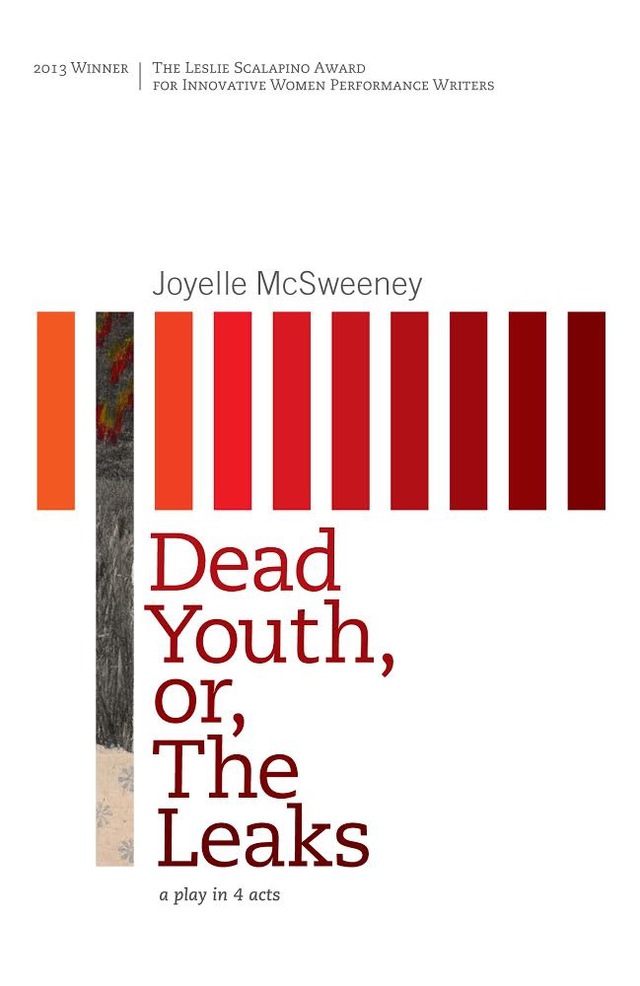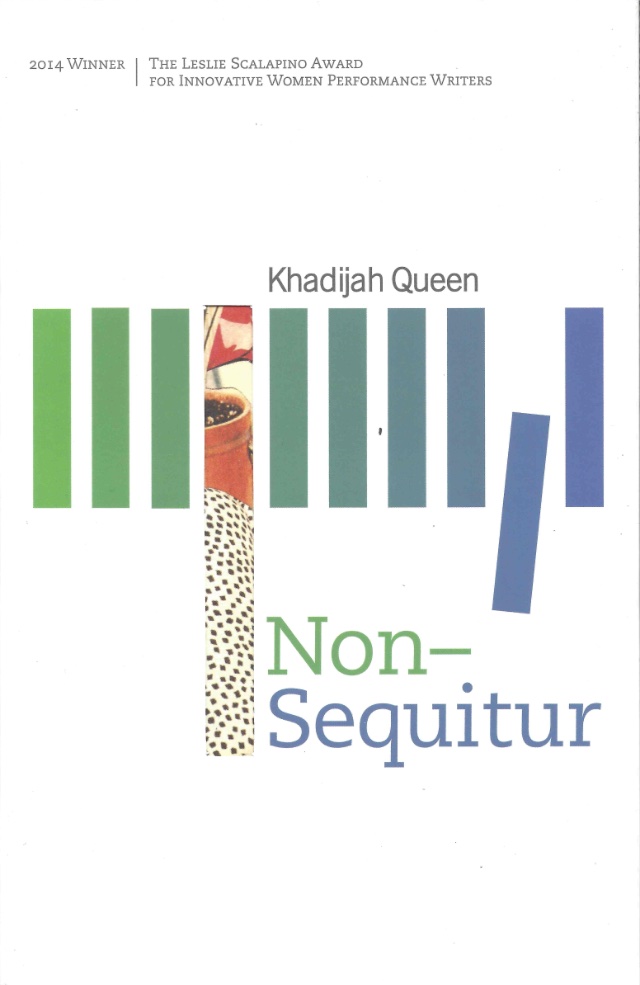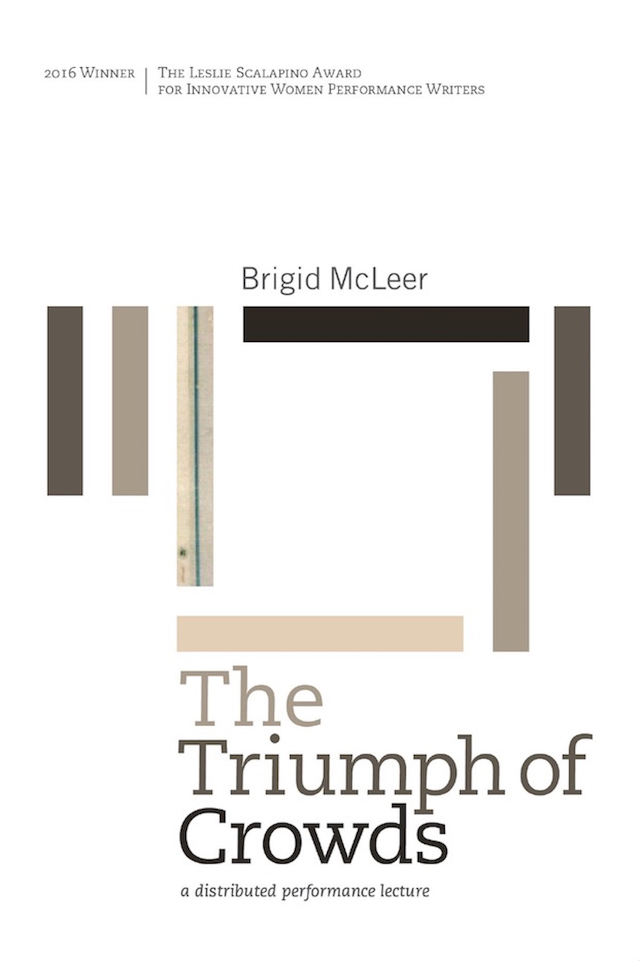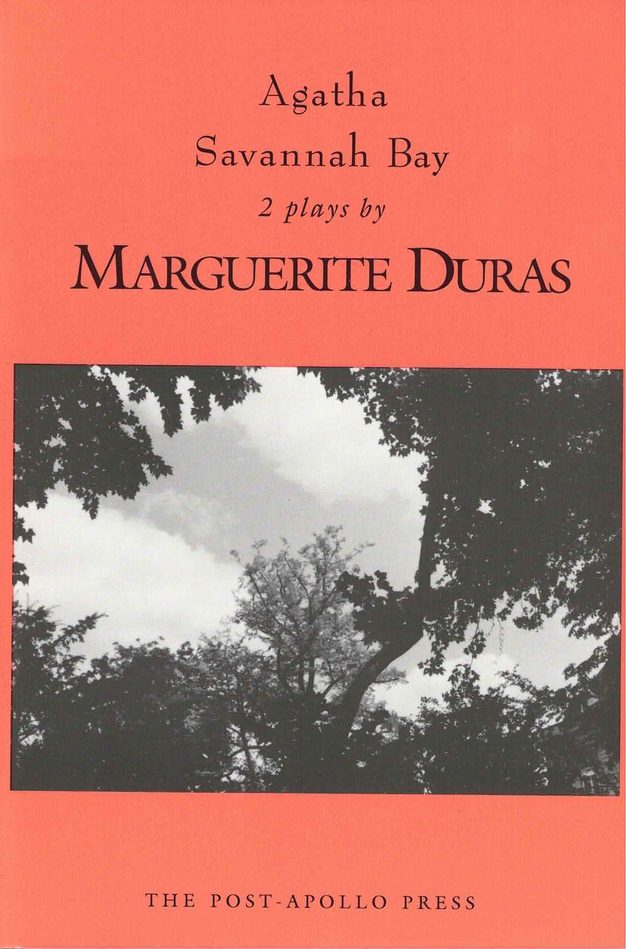Winner of the 2013 Leslie Scalapino Award for Innovative Women Performance Writers
In this farce set on a hijacked containership on its way to Magnetic Island, Julian Assange attempts to “reboot” a troupe of Dead Youth—teenagers from all over the globe who have died in violent circumstances from sweatshop labor to environmental poisoning to war—but must grapple with two other would-be hijackers: a young Somali pirate and a female Antoine de St-Exupéry. Described by its author as a “badly-wired allegory,” Dead Youth, or, the Leaks brings to manic light the veiled violence that makes life in capitalism possible.
Ashley Lamb
Joyelle McSweeney
Praise for Dead Youth, or, The Leaks
Like all of Joyelle McSweeney’s work, Dead Youth refuses to settle into any easy category, delivering a theater experience that’s simultaneously transgressive, classical, visionary, political, and gothic. Although built for the stage, these words still slip, skid, pop, and burrow throughout the page, creating a daisy chain of unexpected associations and indelible effects.
— Jeff Jackson
Dead Youth, or, the Leaks, is the shocking gaze upon the most beautiful and obscene gesture that is survival itself. This work takes as truth the statement that violence is such stuff as dreams are made of, that genocide can be converted to a legible surface, that oppression can be exhalation, that knowledge can be devastation, that violence can be humanistic and natural, staggering, immersive. In other words, Dead Youth is a farce, perhaps, but built on the exploitation and death and misery that becomes charisma and complication and sacredness. Heavy, yet easy to consume for its beautiful and profound images, indigestible, yet productive and rapacious in the indigestion that it produces. This is a work like none other. Let the destruction of the world become the rhythm of your life.
— Janice Lee
I’ve never read anything by Joyelle McSweeney that wasn’t totally exciting. She’s one of the most interesting people working now in terms of the forms she uses, and she’s extremely deft, and playful, and yet the stuff that’s going on, content-wise, is really super-smart, and has really good politics and stuff. I just find her a thrilling font of new stuff.
— Dennis Cooper
Joyelle McSweeney’s new play, Dead Youth, or, The Leaks is savvy, deft, funny, and truly contemporary—a vision of the 21st century, where secrets, language, internet and the human cell run wild and collapse together along with justice and history.
— Fiona Templeton
Dead Youth, or The Leaks is The Tempest recharged into a global picaresque tale about our favorite baby-faced villain, Julian Assange, who hijacks a containership of dead youth until he is thwarted by a band of Somalian pirates. This is internet piracy meets real world piracy.
— Cathy Park Hong





In a 2017 essay, McSweeney calls this kind of writing “posthumous poetics.” The term designates a text that survives and proliferates outside of the author’s control. I see it as a species of prosopopoeia. This “master trope of poetic discourse,” as de Man calls it, is the attribution of speech to an imaginary, deceased, or inanimate entity. McSweeney does this throughout the play, but her characters know they are being ventriloquized. Hers is a kind of postmodern prosopopoeia that draws the audience’s attention to the fact that it is an illusion.
— Sarah Berry, “Poetic Voice and Materiality / Automatomorphism in Joyelle McSweeney’s Dead Youth, or The Leaks,” ASAP Journal
Highly political, highly critical of technology’s role as relates to the youth culture, McSweeney’s mothership, Dead Youth, or, The Leaks, roots itself by questioning information through the appearance of Assange, Wikileaks, even the Muse who cites “The Internet, my second mother,” after which, all in the play approvingly nod.
— Allison Donohue, The Volta Blog
The speaking roles in McSweeney’s plays — and the voice of much of her poetry — sound a little like the textbook-hopping jabber of Ionesco’s Bald Soprano, a little like Harryette Mullen’s heart-stung, Keatonesque logorrhea, and more than a little like a certain flavor of salty ’90s rap.
— Matthew Buckley Smith, LA Review of Books